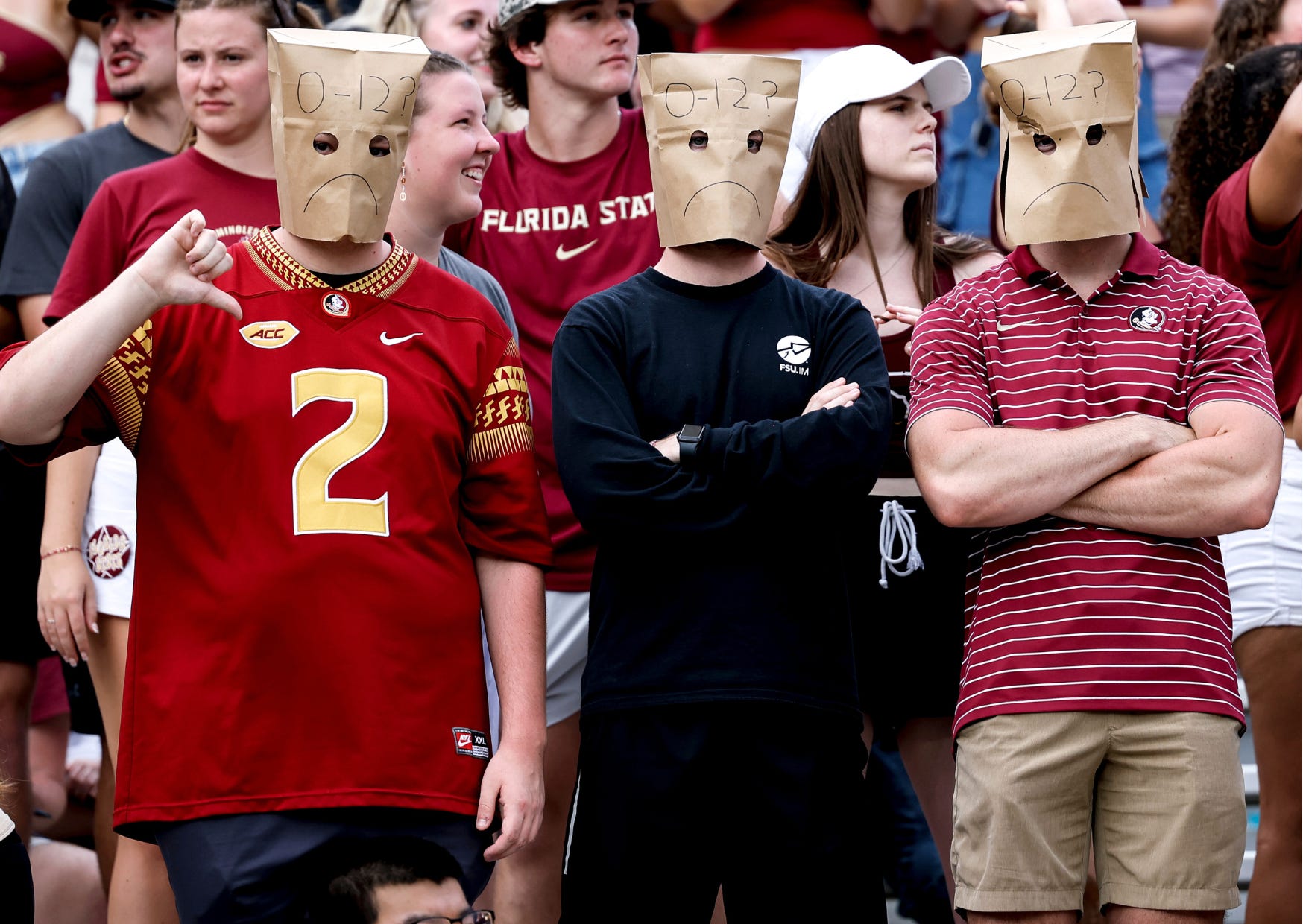College Football’s Biggest Schools Are Paying Smaller Schools Millions To Play (And Sometimes They Lose)
Last Saturday, the Florida State Seminoles played a football game against the Memphis Tigers in Tallahassee. Memphis won 20-12, dropping Florida State to 0-3 on the season and making them the first team in AP poll history to lose three straight games — all to unranked opponents — after being ranked top 10 in the preseason. However, that wasn’t the worst news of the day. That’s because not only did Memphis beat Florida State as underdogs, but Florida State paid Memphis $1.3 million to do it. Florida State fans shouldn’t be too upset, though, as this happens quite often. In fact, Mississippi State paid Toledo $1.2 million earlier this year and lost by 24, while No. 5 Notre Dame paid Northern Illinois University $1.4 million and lost by two (at home). These are called “tune up” or “money games.” The basic idea is that since college football doesn’t have preseason games like the NFL, these games serve as a win-win for both big and small programs — big schools get an easy matchup on their early-season calendar (and the revenue that comes with a home game) while smaller schools get a nice payday and a chance for their players to compete on the national stage. “When I was at Marshall, we tried to play one every three to four years to go out and help the budget and get a paycheck, especially in years when we thought we were going to be a little lean,” says Jeff O’Malley, the current athletic director at Lamar University who also worked at Marshall University. “I think there’s always an advantage to play up and use it as a barometer for where we are. We [Lamar University] went out and played SMU earlier this year, and we really competed,”O’Malley added. Some schools play more of these games than others — Texas is paying three opponents nearly $5 million combined for tune-up games this season — but almost every Power Four football program (i.e., SEC, Big 10, Big 12, and ACC) plays at least one tune-up game per season, with 60 guarantee games in FBS Division I this season worth $75 million, and the negotiations can sometimes get super complex. For starters, the seven-figure payouts start shrinking once you add the price of chartering a jet, buses, food, and hotel rooms for players and staff. That’s why some schools will negotiate these things into the contract, like when East Tennessee received a $415,000 fee and 60 hotel rooms in 2021 to play Vanderbilt in Nashville. The buy-out fee is another sticking point. Bigger schools want the buy-out fee to be as high as possible so they don’t have to deal with a last-minute change in the schedule, while smaller schools like to keep the buy-out fee as low as possible in case they end up receiving a better offer, like the time that Western Michigan University paid a $500,000 buy-out fee to back out of its money game against Cincinnati (because they replaced it with a $1.8 million money game against Ohio State, netting $1.3 million). The result isn’t usually program-changing money, as the funds are often used for locker room renovations or staff salaries. But some schools earn outsized returns by going all-in on the strategy — Kent State University will make nearly $4 million for tune-up games this year against Pitt, No. 6 Tennessee, and No. 10 Penn State — and it can be even more rewarding if they can pull off an upset, like Northern Illinois, who beat Notre Dame and increased its athletic department budget by 6.7% in the process. But while these money games have become incredibly popular over the last few decades, we may now be hitting a ceiling on their overall popularity. The more prominent schools will still schedule games with smaller schools. But it’s important to note that a team like Ohio State doesn’t earn nearly as much money from a money game as they would from a higher-stakes game. Conference realignment has also seen the expansion of conference schedules, meaning teams in Power Four conferences have fewer openings for money games, and the potential House Settlement bringing a new revenue-sharing system that pays players may end up shrinking the budget for revenue-sharing games. If you enjoyed this breakdown, share it with your friends. I hope everyone has a great day. We’ll talk on Friday. Join my sports business community on Microsoft Teams. Huddle Up is a 3x weekly newsletter that breaks down the business and money behind sports. If you are not a subscriber, sign up and join 125,000+ others who receive it directly in their inbox each week. You’re currently a free subscriber to Huddle Up. For the full experience, upgrade your subscription.
© 2024 |

